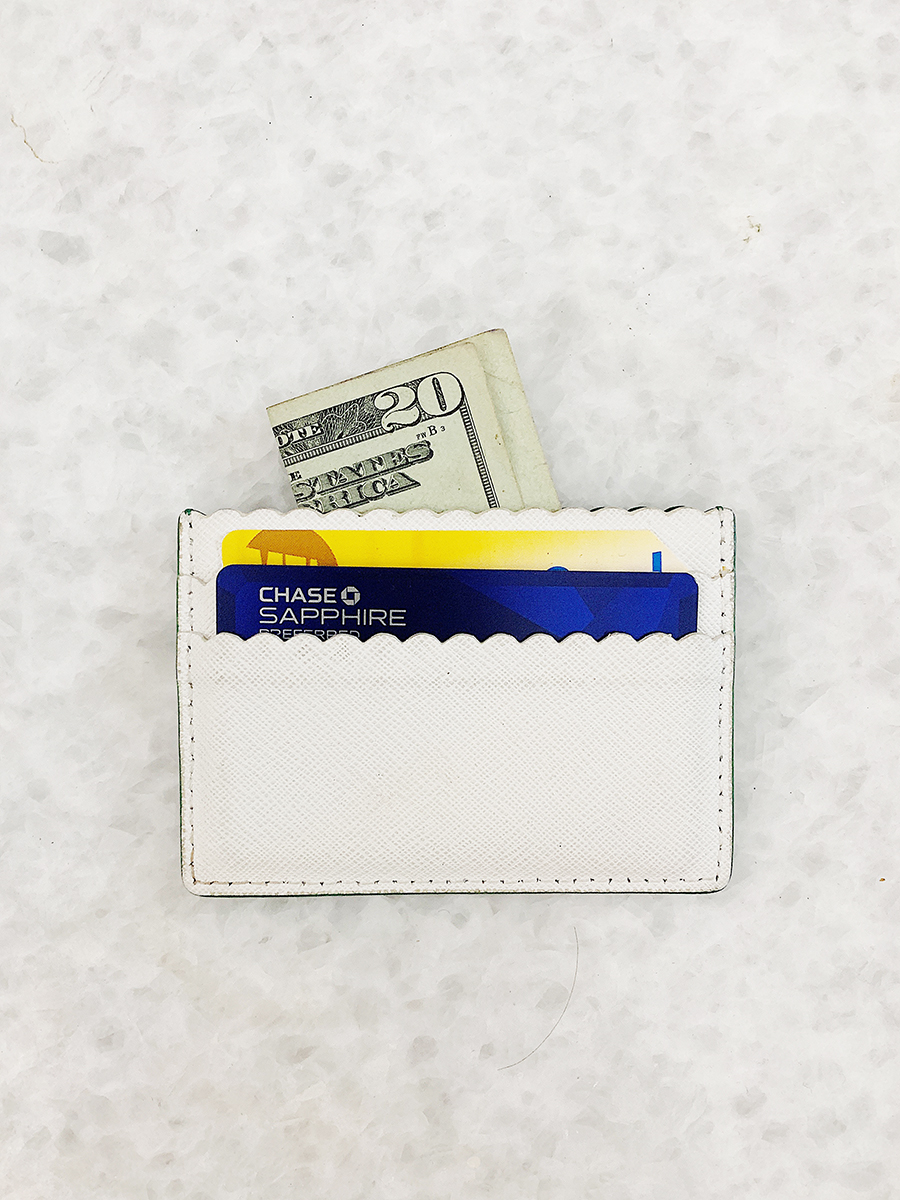This is not going to be an entirely comprehensive post of money management tips. Of course, with just about anything, there is always more to learn and know. I did want to share my thoughts on personal finances though after writing the post about loving my car. I also have to put the disclaimer out there that I am by no means an expert on how to manage finances– just a 29-year-old woman who is figuring this out too. I hope this reads as friendly (not 100% comprehensive) advice and things I have found important to keep in mind throughout my twenties.
I also want to put another disclaimer here to say that everybody is in a different financial position. People value things differently. Some people have things that they’re financially responsible for that other people aren’t (like caring for family members or health). In many senses there is no right or wrong way to manage finances, just different. It’s a disservice to everyone to not acknowledge the differences and/or to judge someone based on that.
Financial health isn’t necessarily about how much money you make. You don’t have to be an investment banker to have good financial health– or have an investment banker to learn and implement finance tips. Having your finances under control is like walking up a flight of stairs. Every step you take gets you to another level of financial health– and freedom. Your habits in your early twenties will affect your financial position in your late twenties which spills over into your thirties– basically all the way through your life. It’s never too early– or too late– to get into good habits and manage finances well.
My Tips for How to Manage Finances
1. Don’t put your head in the sand.
The biggest mistake that I think people make in how they manage finances is to not be totally aware of what’s going on with their own finances. I totally get that feeling. If you’re unsure about something, it can feel better to just ignore it. Regardless if you’re in a super sound financial position or in a dire one, it’s so so so important to know where you stand everywhere. And while things may be unclear (or what you find isn’t pretty), it’s better to know for sure so you can make changes as necessary to get things back under control.
It’s also not as bad to figure things out as it might seem. Fill the printer with new ink, brew yourself a cup of tea, and have a little snack or two on hand. Sit down for an entire afternoon to pore over everything so you can get a good snapshot of where you stand. If you’ve never set a budget, I’d go through a year’s worth of bank statements so you can get a good picture of your spending habits.
I’m in the habit now of reviewing my bank statements every month. You’d be surprised how many little things I catch: mistakes, like being double charged for something; extraneous charges, like a trial I forgot to cancel; etc.
If you’re really overwhelmed and don’t know where to start, reach out to a friend or family member that loves finances (and whom you trust) to help. I’ve helped a couple of friends manage finances over the past year and it’s never as bad as they expect it to be. And they walk away feeling so much better because they know they’re IN CONTROL.
Part of not putting your head in the sand is also going to have to be having honest conversations with your friends about what you can and can’t afford. I firmly, firmly believe there’s nothing to be ashamed of and you may be helping out another friend in your group who is too afraid to say something and so she puts that $45 bottomless brunch on her credit card, again.
2. Be honest with yourself about your income + expenses
So going off of the first task, it sounds like one of the more basic finance tips but you need to know what your income is and what your expenses are. Essentially, knowing these two items will give you a great starting point for setting a realistic budget. Sometimes I think people overestimate their income (what your salary is, isn’t what is exactly deposited into your bank after taxes!) and underestimate what they spend (because they don’t keep track).
Once you know your income and expenses, it might be time for some hard truths. Maybe you realize it’s time to ask for a raise or to find a job at a company that compensates more fairly. Maybe you realize you’ll need to have a “side hustle” to live the kind of life you want expense-wise. (One of my favorite YouTubers just did a great video about side hustles.)
And quite possibly, it’s time to get real about how much you’re actually spending throughout each month. There are things that you won’t be able to avoid like rent, car insurance, student loans, etc. (But you may be able to make smarter choices like selling a car you don’t need and opting for public transportation or finding a roommate to cut down on rent.) But… you for sure have other expenses that are choices and are crucial to cutting down on in order to manage finances. Ubers, dinners out, drinks with girlfriends… those things add up. Even a $4 latte in the afternoon seems harmless enough until you’re going every single day. And then it turns into $20/week (just going on a weekday!). Which turns into $80/month. Which is $960 a year. That’s nearly a thousand dollars that could have gone towards savings or a downpayment for a big purchase like a car or house. (If you saved that $4 every weekday of your twenties, you’d have nearly $10,000 in savings without any other contributions.)
3. Watch out for monthly expenses and recurring costs
When you’re going through expenses, I have a personal philosophy to watch out for monthly expenses and recurring costs. Obviously, you have to pay your rent every month and car insurance and groceries. But there’s a major trend, especially with the rise of mobile apps, to have monthly payments. Retailers are even allowing you to break down the price of handbags into monthly payments. That’s a major red flag for me!!!
If you’re trying to get really serious about how you manage finances, cut the cord on everything you possibly can. Just say no to the photo editing app charging you $2/month for access to new filters. Listen to ads on Spotify to avoid the extra $10/month. Be vigilant about canceling trial periods to avoid unnecessary charges. Get a library card to download audiobooks instead of a $15/month membership. Find a credit card that doesn’t have a yearly fee.
When you’re going through your bank statements, look for things you know you can cut down on (and seriously, review those iTunes receipts!!!).
4. Put money into savings– save for necessary things
Once you know your income and what your expenses truly are (minus the extraneous things you end up cutting), you can come up with a budget for yourself and begin to truly manage finances. Netting out zero is not good enough though, i.e. what you bring in – what you spend should be greater than zero.
I think traditional saving methods can be hard to do, especially when you’re in the first five years of your career, but you should absolutely be doing the best you can. Everyone is different so I think it’s hard to say a specific number or percentage, but I think doing what I outlined above will give you a good sense of what’s reasonable for you. One of the best money management tips I can give you is whether you can spare $100/month or $1,000/month, make sure you’re putting it aside right away (like when your paycheck comes in) and pretend like it doesn’t exist. I don’t believe this should be the fund you dip into for “bonus” things like a fancy handbag or even travel. If you can save more beyond that, then you might want to save for something like a summer trip. (But if that summer trip is going to totally drain your savings, I’d personally find something cheaper like an AirBnB in a place where I can drive to versus an expensive flight + hotel situation.)
5. Work on your credit score. Automatic payments, alerts, use like a debit card.
And one thing that is really important to get on top of is your credit score. You cannot truly manage finances without managing this. The time to figure out your credit score is not the month before you’re buying a house. I’ve been working on my credit score since college and I still am “dinged” for not having a long enough credit history. It’s never too early to work on yours.
There plenty of other (better) resources for credit scores, how they work, and what they mean, but I’ll give you my credit philosophy and a few of the easier tips. Once you get the hang of it, it’s not as complicated as it seems– but it’s worth looking into more seriously if you’re totally confused.
1. Get a credit card or two and treat them like debit cards. Just because you have a $10,000 limit, doesn’t mean you should spend $10,000. In fact, you shouldn’t. Your credit score essentially tells financial institutions, like the bank giving you a mortgage, that you can responsibly spend and pay back these loans. Don’t be afraid of credit cards. You CAN use them responsibly– especially if you’re treating them like a debit card. (If you have $500 budgeted to spend in June, you can’t spend more than $500 even if you could charge your card more than that.) Every time you pay off your card, in full and on time, it helps your credit score. You’re proving that you’re responsible with your money and that a bank could trust you with a big loan to finance a business, a home, or a car.
2. Set up automatic payments for all loans, including credit cards. ONE late payment can affect your credit score for years to come. Banks make it kind of tricky to do this, from my experience, so I give customer service a call and have them set it up on their end. I also have text notifications just to let me know when a new payment has posted so I can ensure there wasn’t a glitch in the system. Because of this, I’ve never missed a payment and I don’t even have to think about it! I have my automatic payments post the last day it’s due so I always have a month’s worth of expenses on my card so my “utilization” is good (i.e. what my debts are versus how much credit I have available).
3. Find other ways to prove your credit– especially when interest rates are extremely low or 0%. For me, I financed most of my car (which I paid off this past year 🎉). Making $200/month payments was more than doable for me and every payment just continued to solidify my credit score! I also technically finance my iPhone from Apple as part of their iPhone Upgrade program. The interest rate is 0% and I make a small monthly payment and turn in my phone every year for a new one. It’s just another “notch” in my credit ability according to the banks.
4. Use a free service to track your credit score. Make sure the website doesn’t affect your credit score (most don’t, so you should be fine). Chase offers it for free as part of having an account with them through Credit Journey. I get a report every month where I can track changes and ensure nothing dramatic has happened without my knowledge. Most of the time they’ll even offer advice on what can help your credit score. Just a warning though, these services are free because they ultimately recommend credit cards. That’s not inherently a bad thing, but don’t get an additional credit card if you don’t need to.










These are such great tips. I recently went through and sorted out all my finances, and it wasn’t half as bad as I thought it would be! It can definitely seem very daunting and like a scary task, but it’s so worth it once it’s done and then it’s easier to keep on top of it too.
Emily | Snippets of Emily’s Life xx
Chase was amazing when I first signed up with them in college. They offered so many amazing services to help understand how to personal finance. This is such a great starter list!
chevrons & éclairs
Hello. I would be interested in financial advise for freelancers / people who are self-employed. You alluded to this in a previous post when you mentioned that you paid yourself a “salary”. More tips concerning financial health for people with a variable income would be welcome.
So I HIGHLY recommend using an accountant to set up the best structure for you. Everybody’s business is going to be different and usually an accountant (while they charge for their services) will still end up saving you money in the long run. Personally, I have an S Corp and pay myself a normal, monthly salary through a payroll company so that I’m not “unemployed.” And then I pay myself my business’s profit at the end of the year through a K1 calendar.
This was a really great post! And provided some food for thought. Thanks for sharing Carly!
I loved this post! I am 23 and learning slowly how to manage my finances. I started recently using an app called Mint which basically shows you where you stand with your money, where you are spending, and allows you to set budgets. It’s been great for accountability and planning ahead. Thank you so much for sharing, these life/advice posts are my favorites of yours!
-Lauren
These are great tips, especially the one about saving. Savings is so important!!
This is SO helpful and informative especially as a college student planning on graduating soon. Great tips! I’m definitely saving this post for future reference!
Carly, thank you so much for taking the time to write about this! I am passionate about personal finance, and I’ve found there is a great lack of practical, functional knowledge for young women. I’m bookmarking this post and sending it to several gals I know. Have a great day!
Another tip for people who work at a company that offers a retirement plan (401K or similar): 1) sign up! Starting early is huge as you get the benefit of compounding 2) save AT LEAST as much as your company is matching – the match is FREE money!
Hi Carly! Thanks for sharing, I’ve been meaning to sit down and finally do a budget but keep putting it off! Quick question – where is that little wallet from? I’ve been looking for one exactly like it and haven’t found anything I like! Thanks!
Kate Spade! I’ve had that one for a few years now, but these are sort of similar: https://cprep.co/2DRMBoE
Great tips! I would highly recommend if people are looking for a budgeting app to use You Need a Budget (YNAB). It is truly one of the best products I’ve ever used and has helped my husband and I be able to cashflow our grad school tuition, save up to pay for a car in cash, and save up for a 6 week vacation to Europe. Budgets sound like they can be deceiving, but having one has allowed us to spend our money on the things that really matter to us. YNAB has truly been a lifesaver and I wish everyone knew about it!
I’ve heard AMAZING first-hands of reviews of this!!
EveryDollar is a free service that is similar to YNAB, which I believe has a small fee associated. I’ve used both and love both – but I *really* love that EveryDollar is free!
Would def be interested in more how you budget Carly – I think my biggest struggle is sticking to one (duh). I try to use YNAB but I just find it hard to check the app every time I buy something.
If you’re a school with an .edu email you can get a FREE year of YNAB— that’s what I did! Mine expires in December and I’ll be paying for the full membership.
Great post Carly. I would also recommend a few things. First, find an investment firm that can help you save for retirement. If you are in their 20’s its something that should be high on your list and is so important to start early! Meet with different advisors until you find one that you are comfortable with. Second, save wherever you can! Decide what you’ll save and stick with it – for example, “I’m going to save every $5 bill in my wallet” or “I use coupons at the grocery store and I’ll transfer whatever my receipt says I saved into a separate savings account after I go to the market” – little amounts add up fast and it almost becomes addictive to see how much you can save! Lastly – start shopping at estate sales for items you need for your home. I can’t stress this enough – you will save a fortune and have items that no one else has and the items will more than likely be of higher quality.
Have you heard of the book I Will Teach You to be Rich by Ramit Sethi? One of my friends recommended it to me as she noticed that I was paying more attention to budgeting and personal finance. I only read half of the book before I had to return it to the library, but I found it helpful and requested a hold from the library again to finish it off 😛 -Audrey | Brunch at Audrey’s
These tips are perfect, Carly! I was horrible with savings in college but when I started dating my husband I got into the habit of have $50 go into savings from each paycheck. With everything I saved I was able to put a downpayment on a car.
Please more budget content!!! I really enjoy posts like these.
These are amazing tips, Carly! I’ve been trying to save more when I can… I need to make an indepth budget!
Kendal / Life With Kendal
Thank you for all the tips!
I’m a huge advocate of audiobooks and was *this close* to signing up for Audible a few months ago, but I couldn’t justify the expense in my budget. My friend introduced me to Libby, a free app that gives you access to a humongous collection of audiobooks for free. You link your library card to it and can “borrow” audiobooks for 14 days, similar to what you can do at the library.
It’s a game-changer! It’s not only free, but I found the choices are always growing. Definitely a must-try if you haven’t already heard of it, and could eliminate the Audible expense so you’re saving that much more!
Thanks for the really great tips Carly. These are so important and useful, too!
I hope you have a fantastic Wednesday, Michael
https://www.mileinmyglasses.com
I hope you and Apple considers the environmental impact of a program like that. What happens to the old phones?
They recycle parts and refurbish phones!
Love this post! I’ve been aware of finances my whole life. I just took my first accounting class during my junior year of college and it was honestly life changing when I did my first monthly statement. It puts your expenses into an entirely new perspective! I realized how much money I was spending on coffee or quick bites out with friends, so I made a better habit of eating at home and saved so much the next month.
This is the blogging content the internet needs! While so much content is focused around encouraging sales and convincing us to buy stuff we don’t need, it can often stretch us beyond our means. There’s not enough stuff like this out there that encourages responsible finance. 🙂
Such a great post and such amazing tips to follow. Nowadays people don’t think of saving money, they just spend more on unusual things. These tips will really help them in saving money. They will know how important money is for a better future. I really loved your blog, very interesting and very well explained. Thank you for such great tips, I will share this with others and also I will bookmark it for future reference. Take care and have nice day.
Thanks for the advice, because I always had problems with finances, I am a programmer and make good money, but my python programmer salary isn’t enough for anything, they just disappear, I’ll try to use your article!
Amazing Tips! Very helpful and very useful for Beginners and every 18 years person. A great piece of information. I would definitely try to follow these suggestions for my better future and for my family as well. Thank you for sharing these great tips. I hope you will keep posting this kind of post. Have a nice day.
Hello everyone, this is a very interesting article for me. I learned more important things about how to increase money. This is a very useful knowledge that helped me to feel independent. Easy process of cryptographic exchange. Privacy and confidentiality of transfers of different currencies (Bitcoin, Lightcoin, Etherium) where to trade ethereum https://jidex.io/ (Jidex). Choose this platform to make everything fast and clear. I am actively engaged in trading in the financial market instead of with my friends